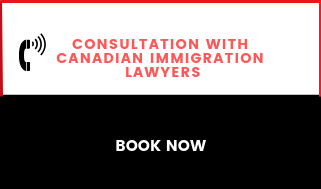
by Immilaw Team | Sep 18, 2021 | Canada Immigration
The Provincial Nominee Programs permit each province and territory of Canada to select and nominate candidates for Canadian Permanent Residence. The Canadian provincial nominee programs allow the provinces to respond to their immediate needs. As a result, the provinces can fill the in-demand positions with skilled workers. The 80 different PNPs have their eligibility criteria. Many PNPs require the candidate to have some connection with the province. This could be work experience, studies, or a job offer from the province. On the other hand, some PNPs do not require any connection to the province and are ideal for candidates from outside Canada.
Easy provinces to get Canadian permanent residence in 2021:
SASKATCHEWAN’S INTERNATIONAL SKILLED WORKER
This PNP targets to bring in skilled workers to the province. Candidates with at least one year of experience in the jobs listed on the Saskatchewan In-Demand Occupations List are eligible for immigration.
Candidates must have a post-secondary educational qualification of a minimum of one-year duration and proficiency in English or French.
Saskatchewan International Skilled Worker Program has two streams for candidates from outside Canada.
- The Saskatchewan Express Entry stream, which requires an active Express Entry profile
- The Saskatchewan Occupation In-Demand stream, which does not require an Express Entry profile.
ALBERTA’S EXPRESS ENTRY STREAM
Alberta, the western province of Canada, is worth considering when you apply for Canadian permanent residence. In addition, the main cities of Calgary and Edmonton provide job opportunities.
The Alberta Express Entry stream selects the candidates from the Federal Express Entry Pool. They are then invited to apply for nomination by the province.
The primary benefit of this stream is that the CRS score is 300. This enables more candidates from the pool to qualify for nomination.
Receiving a nomination from the province increases the CRS score to 600. This guarantees an Invitation to Apply (ITA) for permanent residence in the Express Entry draw.
ONTARIO’S HUMAN CAPITAL PRIORITIES STREAM
Ontario, with its bustling city of Toronto and growing job market, attracts immigrants. The Human Capital Priorities Stream is the best option for candidates applying for permanent residence from outside Canada. This program selects skilled workers on priority to fill the skilled worker positions in the province.
The Human Capital Priorities Program works in tandem with the Federal Express Entry System. Candidates with active Express Entry profiles and CRS scores of 400 or more are eligible to apply. Ontario invites only a select number of the Express Entry profiles to apply for the PNP.
Ontario conducts draws targeting tech workers under the Human Capital Priorities Program. Candidates with work experience in any one of the six designated NOC codes are eligible. In addition, the province conducted three tech-specific draws inviting 4350 applicants.
Ontario has a PNP for French-Speaking Skilled Workers. Candidates with proficiency in French and with Express Entry profiles are eligible for immigration under this stream.
Which is the right PNP for you?
It is difficult for a candidate to choose an apt immigration program from more than 80 PNPs offered. Therefore, please do not hesitate to contact us to know more about Canada’s Provincial Nominee Programs (PNP) and the different ways to immigrate to Canada.
Immilaw Immigration Law Professional Corporation, being one of the leading Canadian immigration law firms, offers the best legal services related to immigration matters. At Immilaw, we assist international students, foreign entrepreneurs and investors, temporary foreign workers, and candidates seeking temporary or permanent residence status in Canada, ensuring the highest chance of success.

by Immilaw Team | Sep 17, 2021 | Canada Immigration
The
Canadian immigration policy recognizes the need for family unification and bonding. Hence, the second most prioritized category in the Canadian immigration policy is family unification, which is the objective of IRPA [s.3(d)]. Therefore, even if you are an international student, you can bring your family with you to study in Canada.
Categories of people who are eligible to bring their families into Canada:
- International Students/ Skilled Workers
- Post Graduate Work Permit (PGWP) holders
- Permanent Residents (PR) and Citizens
Eligibility criteria:
Spouses or common-law partners (Full-time students)
You must provide authentic documents to prove that you are a full-time international student’s spouse or common-law partner who holds a study permit from a post-secondary education institute.
The institutes can be:
- A trade or technical school
- Colleges
- Universities
- Any Canadian private institution authorized by the respective provincial statute to confer degrees (Bachelor’s, Master’s, or Ph.D.)
- CEGEP in Quebec
- A private institution governed by the same regulations as a public post-secondary institution in Quebec
- A public post-secondary institution in Quebec
- A private or public post-secondary institute offering diploma programs exceeding 900 hours in vocational studies or specialization in Quebec
You can take up employment in the general market without an LMIA, and you are eligible for open or restricted work permits (depending on the results of a medical examination). An offer of employment is not necessary for a work permit to be issued for spouses.
Spouses or common-law partners of open work permit holders (PGWP) [C41]:
The following documents should accompany the application for spouses.
- Documents to show that your spouse, the work permit holder/foreign worker, is employed at skill level 0, A, or B. This is necessitated as the IRCC cannot assess the skill level based on the open work permit alone.
- A copy of the principal worker’s current employment offer/contract or a letter from his current employer confirming his employment.
- Copies of the last three payslips.
Spouses or common-law partners of Permanent Residents or Citizens:
If you are a citizen or Permanent Resident (PR) of Canada, you can sponsor your spouse as a Permanent Resident. You do not have to apply for a work permit or a Temporary Resident Visa.
If you have any questions regarding sponsoring your family or want to know more clarifications, you can either give ImmiLaw Immigration a call or write to us. Our immigration lawyers are happy to help you and will clarify all your doubts regarding Canadian immigration.

by Immilaw Team | Sep 16, 2021 | Canada Immigration
According to popular newspaper reports, Canada’s vetting process is negatively impacting people’s chances of entering the country despite globalization providing them with additional means and opportunities for travel. Canada projects itself as a country always open to tourists and welcoming permanent residents. But on the other hand, the challenging and detailed immigration process makes it very difficult for new entrants and visitors to enter the country.
Canada refused entry to about 500,000 people in 2017, approximately 25% of the total number of applicants. In addition, the rate of refusal of visas for short stays has been steadily rising over the years. The purpose of short stays is usually tourism, business, attending conferences, or visiting family.
If your temporary resident visa has been refused, you can contact Immilaw Immigration for guidance. Only a Canadian Barrister / Solicitor can represent you in the Federal Court.
A few reasons that cause the Temporary Resident Visa or Visitor Visa to be refused are when:
- The purpose of the visit is not clearly specified
- Previous travel history is not detailed
- Family ties are not validated
- Home country/nationality status is not established
- Personal assets and financial situation are not provided
The temporary resident visa refusal can be challenged in the Federal Court of Canada. You can challenge the refusal within 15 days if the temporary resident visa has been refused in Canada and within 60 days if it has been refused outside Canada.

by Immilaw Team | Sep 15, 2021 | Canada Immigration
We, at Immilaw Immigration, can help when a candidate’s immigration case has been refused due to misrepresentation of facts or has received a procedural fairness letter. You can contact us to book a direct consultation with our lawyer to discuss the case confidentially.
What is Misrepresentation?
Misrepresentation means providing incorrect or false information about facts relating to essential matters. Section 40 of the Immigration and Refugee Protection Act states that a foreign national or a permanent resident is not permitted entry into Canada if relevant facts are misrepresented or withheld, as these facts could create an error in the administration of Canadian immigration laws.
A few cases of misrepresentation:
- Failure to declare that a visa to another country had been refused
- Providing a non-genuine document
- Stating false employment experience
- Non-mention of a family member
- Obtaining permanent residence by involving in a fraudulent marriage Immigration candidates have to ensure that their applications and supporting documents are valid, correct, and accurate. Innocent mistakes can sometimes occur, but providing false information or ‘misrepresentation’ is a punishable offense. The Immigration and Refugee Protection Act has now increased the term of inadmissibility into Canada from 2 to 5 years for misrepresentation.
What should I do on receipt of a Procedural Fairness Letter?
It is highly recommended that you contact a law firm on receiving a Procedural Fairness letter. Procedural fairness letters offer an ‘answer by’ period of 15 to 30 days, after which a misrepresentation ban is imposed. Responding to the procedural fairness letter is the only opportunity to explain yourself before the ban is imposed. Hence, it is better to contact a law firm to guide you before sending in the response. The response should provide a detailed explanation with supporting documents.
Can a misrepresentation ban be challenged in court?
All decisions made by the IRCC can be challenged in the Federal Court of Canada. The process in the Federal Court is called Judicial Review. This means that the federal court will only review the decision. Therefore, new evidence or details that were not placed before the visa officer earlier cannot be introduced or added to the court.
When can you challenge a misrepresentation ban in court?
The bans can be challenged only when there is clear evidence that the misrepresentation was either due to an innocent mistake by the applicant or a genuine error by the IRCC. Misrepresentation bans are tough to overcome. However, you can approach the Federal Court of Canada when no other alternative is available.
What is the time limit for approaching the Federal Court?
If you are sure that the misrepresentation ban has been wrongly imposed or unreasonable, you can challenge the IRCC ban within 15 days (if you are resident in Canada) and within 60 days (if you are residing outside Canada) of receiving the refusal letter.

by Immilaw Team | Sep 9, 2021 | Canada Immigration
According to the latest news reports, immigration applications to Canada filed by immigration lawyers have a higher chance of success than those filed by immigration consultants or by the applicants themselves. At Immilaw Immigration, our team of best immigration lawyers in Canada provides all the relevant information about avoiding getting cheated by self-styled immigration consultants. You can also find related information on our website about how you can partner with a trustworthy agency that fields experienced immigration lawyers from the very start of your immigration journey. We believe this can help you avoid losing time, money, and even the chance to immigrate to the country of your choice.
The IRCC’s reports suggest that those applicants who route their applications through an immigration lawyer suffer less rejection. Statistics revealed that only a small percent of applicants who filed through an immigration lawyer suffered rejection compared to 19.3 percent of applicants who submitted applications all by themselves. About 18% of those who submitted their applications through immigration consultants failed.
Marina Sedai, chair of the immigration section of the Canadian Bar Association, explained that the gross difference in numbers was due to Canadian lawyers’ rigorous education and training, legal analysis skills, experience, and high ethical standards.
Another reason that influenced the numbers, Marina Sedai opined, was that the culture of law in Canada leaned more on passion than business. This meant that lawyers often wanted to fight more challenging cases. However, they also made it a point to discourage clients who presented a hopeless immigration case to save their time and other resources.
How Canadian Immigration Lawyers Can Increase the Application Success Rate?
A Canadian immigration lawyer is a person with law degree certification after a 3-year course. They need to qualify for the bar exam for registering as a member of the Canadian provincial law society. Unlike a consultant, an immigration attorney will have in-depth knowledge and awareness about immigration rules, the latest amendments, and the prerequisites so that we can ensure our applications have a high success rate.
Here are some major points on how a Canadian immigration lawyer can increase the application success rate.
- Reduce the possibility of fraud
- Hassle-free immigration process
- Representation in the case of objections or legal complications
- Current with the immigration laws and amendments. Hence, they will comply with the requirements perfectly
- From their long professional experience and knowledge, they know well what documents you need and what are the procedures and processes of Canadian immigration.
- Because they know where the chance for rejection is, they identify easily and correct it all quickly.
- Proper advice and corrective measures if there are any problems regarding your documents or application
The immigration process can be the most critical phase in your life. Therefore, it is not wise to squander your money, time, and resources on bogus/fake/ghost consultants. Instead, the best odds for your immigration success are when you work with a trustworthy immigration lawyer.
Do you want to immigrate to Canada? Take our free preliminary online assessment to determine whether you are eligible! Consult one of our experienced immigration lawyers and get your application filed by a legal professional.

by Immilaw Team | Sep 7, 2021 | Canada Immigration
Canada Inadmissibility
Inadmissibility is the major immigration issue that most people encounter when applying for a visa to Canada. What this immigration issue refers to is that an individual is not allowed to enter Canada. The reason for barring someone from entering the country has mostly to do with a criminal history or medical issues.
It is essential to know that the inadmissibility clause applies to all applicants whose names are on the immigration application form. For example, suppose one of the family members accompanying an individual to Canada or one whose name is on the application for a visa has medical or criminal inadmissibility issues. In that case, the immigration department can reject the entire application. Inadmissibility can turn out to be a significant obstacle when pursuing immigration to Canada. However, there are options for a person to overcome it and gain entry into the country.
Criminal Inadmissibility
A convicted person in his home country becomes inadmissible to Canada if a corresponding crime is under Canadian law. However, all types of convictions and offenses do not make the inadmissibility clause applicable to a person. The degree of seriousness of a crime is also an essential factor. For example, a DUI charge is one of the most common reasons for criminal inadmissibility. People with a couple of recent DUI convictions often face rejection and might not be able to enter Canada for a maximum of 10 years from the date of completion of their sentence. Other crimes that can trigger the criminal inadmissibility clause include reckless driving, theft, and assault.
Medical Inadmissibility
The inadmissibility clause becomes applicable in the case of people with severe medical conditions that threaten the health and safety of the people of Canada. Further, suppose the immigration officer concludes that a person could become a burden to Canada’s publicly funded health and social services system. In that case, they may not be able to immigrate to the country.
Temporary Resident Permit
Inadmissibility does not amount to a permanent ban on Canadian immigration. There are ways and means of helping people who face a ban due to specific medical issues and criminal convictions. A Temporary Resident Permit is one of the options available to such people. In addition, an inadmissible person with a genuine requirement that outweighs the risk of having them in Canada can expect a special permit. Such a permit will enable them to be in Canada for a specified period.
How Can Immilaw Immigration Help You?
Inadmissibility is a complicated immigration problem that a person planning to move to Canada can encounter. If you have any questions regarding the inadmissibility clause and want to know the options that will help you to overcome this problem, you can either give ImmiLaw Immigration a call or write to us. One of our experienced Canadian immigration law experts will clarify all your doubts.







